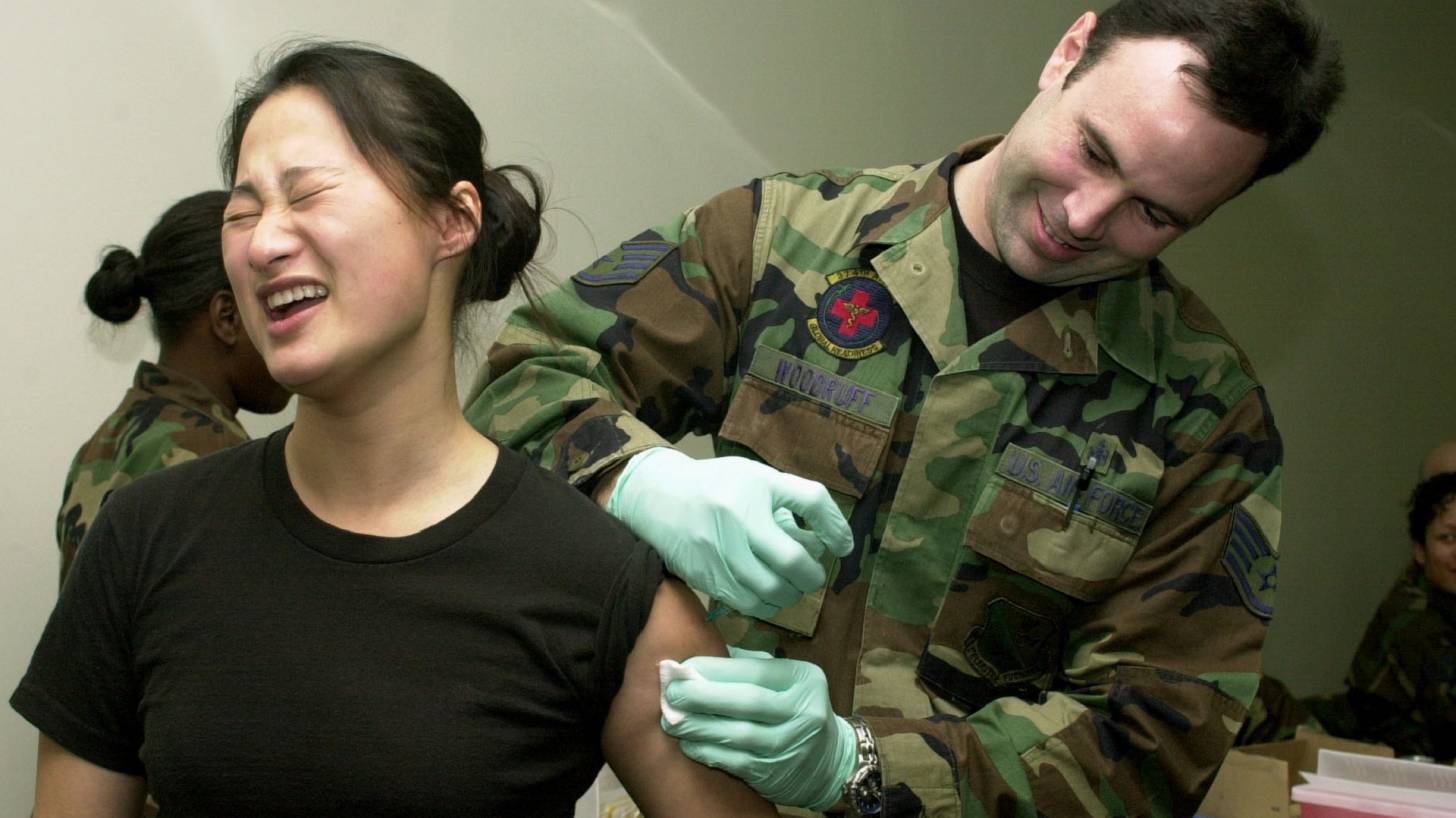Military Reports Mumps Case on Base

A U.S. soldier based in Italy was recently diagnosed with the mumps virus while on temporary duty to Germany on August 7, 2019, reported Martin Egnash with Stars and Stripes.
Army officials believe the servicemember contracted the virus before he left Italy and brought it with him to Germany, where he was training.
Army officials are now ‘urging base personnel to stay up to date on their vaccinations.’
“Out of an abundance of caution, anyone who had close contact with the affected individual has been contacted and is receiving appropriate medical evaluations and vaccinations,” the Army said in a statement to Stars and Stripes on August 9, 2019.
The Army has contacted individuals who have had prolonged contact with the soldier and tested them to prevent the mumps virus from spreading.
Mumps is a contagious disease that is caused by a virus, says the US Centers for Disease Control and Prevention (CDC). It typically starts with a few days of fever, headache, muscle aches, tiredness, and loss of appetite. Then, most people will have swelling of their salivary glands.
“All soldiers are required to receive the MMR vaccine and remain current as part of their medical readiness,” Alain Polynice, a spokesman for Medical Department Activity Bavaria, told Stars and Stripes.
The soldier treated for mumps at Grafenwoehr was up to date on all his vaccinations, including the MMR vaccine, Polynice said.
However, the MMR vaccine is not 100 percent effective in preventing mumps.
The US Centers for Disease Control and Prevention (CDC) says 1-dose of the MMR vaccine is about 78 percent effective at preventing mumps. A 2nd dose increases the effectiveness to 88 percent.
But, some people who receive 2-doses of MMR vaccine can still get mumps from vaccine effectiveness ‘waning.’
According to a Harvard study in 2018, the MMR vaccine-derived immune protection against mumps persists on average for just 27 years, after the last administered vaccine dose.
In response to this information, the CDC released new guidance suggesting when the 3rd dose of mumps vaccine is appropriate to administer.
Vaccine.gov says on its website that ‘as a member of the military, you’ll get vaccines when you enter basic training and before you deploy to protect you from serious diseases. Most military members receive the same recommended vaccines as everyone else based on age, vaccination history, health conditions, and travel plans.
And, ‘depending on where you’ll be deployed, you may also need additional vaccines.
Vaccine recommendations by area of military responsibility can be found here.
Nationwide, from January to July 19, 2019, there have been 45 states and the District of Columbia reporting mumps infections in 1,799 people.
Which is actually good news, when compared to previous years.
From January 2016 to June 2017, various health departments in the USA reported 9,200 mumps cases, including outbreaks at schools, universities, athletics teams and facilities, church groups, workplaces, and large events.
The mumps virus is easily spread by droplets of saliva or mucus from the mouth, nose, or throat of an infected person, usually when the person coughs, sneezes or talks, according to the CDC.
>> Confidential Mumps Testing Service <<
CDC officials say 'it's never too late to be immunized.
In the USA, there are 2 approved mumps vaccines, MMR-II and ProQuad, which are available at most pharmacies and health clinics. Any vaccine can cause side effects, which should be reported to a healthcare provider, or the CDC.
Mumps virus news
Texas Reports 385 Mumps Cases During 2019
Indiana University Mumps Outbreak Reveals Waning MMR Vaccine Protection
Our Trust Standards: Medical Advisory Committee

























